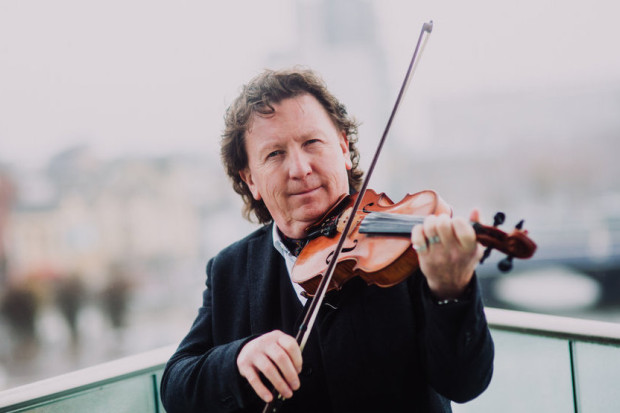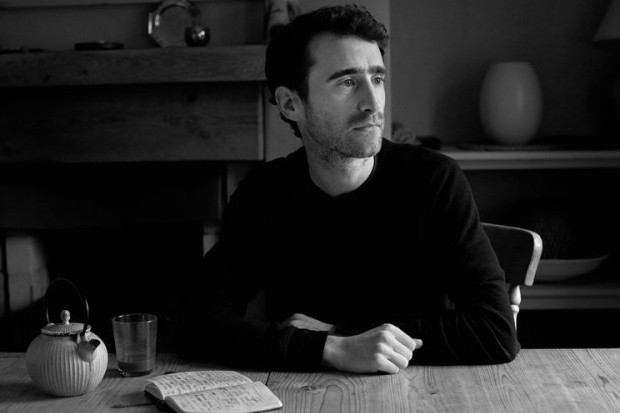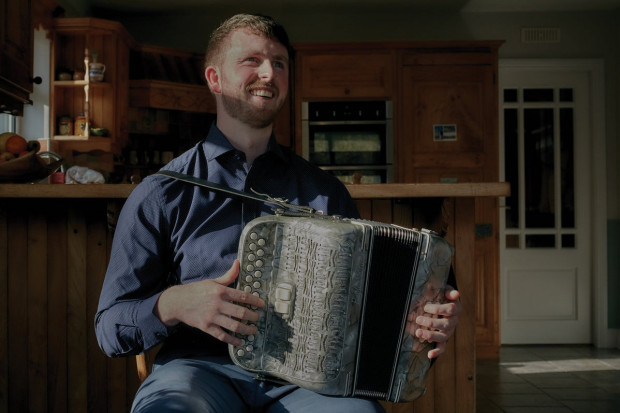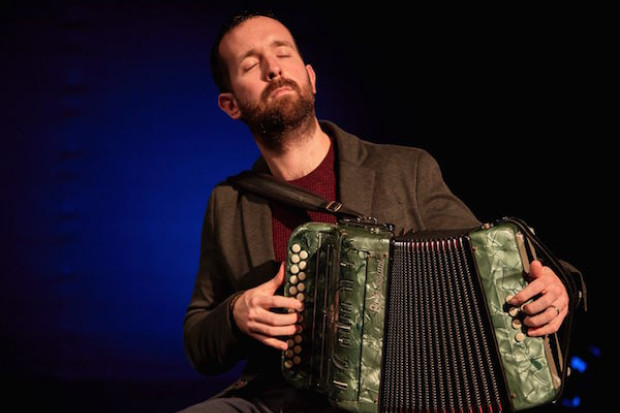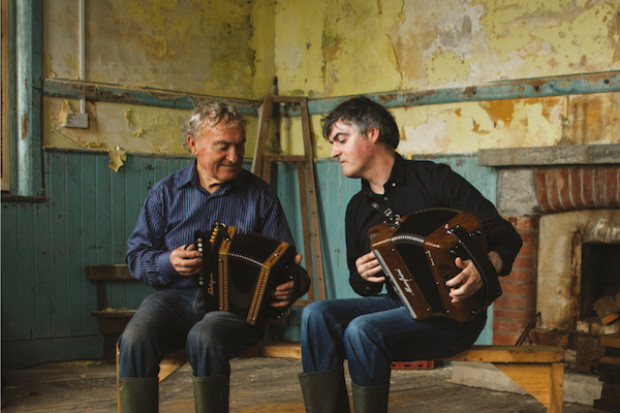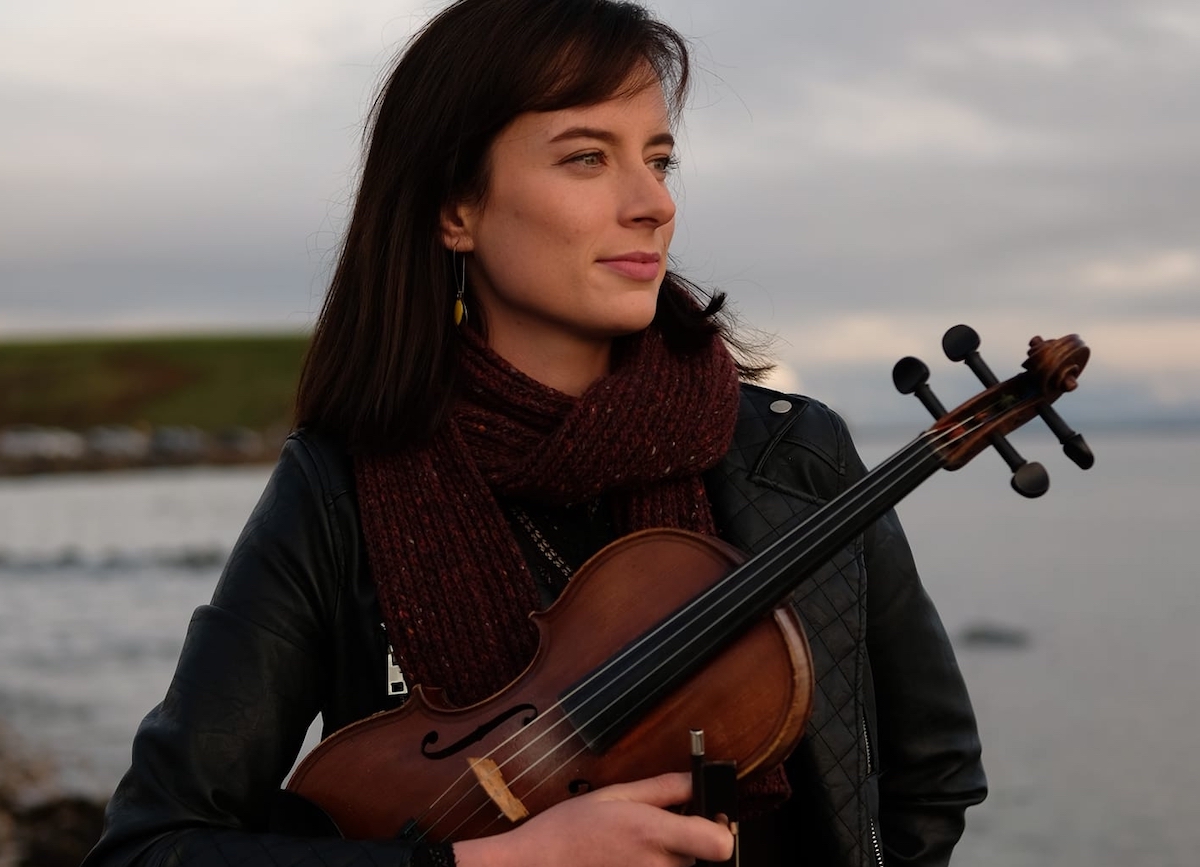
Sorcha Costello.
Different Strands of a Musical Identity
Clare fiddle player Sorcha Costello has become a familiar presence over the past few years as a performer at festivals and on broadcasts both on traditional and social media. She has also been recognised by the Gradam Ceoil TG4 awards, being honoured as young traditional musician of the year in 2021. While she has recorded before, most notably with her mother and concertina player Mary Mac Namara on the duet album The Lady’s Cup of Tea (2016), The Primrose Lass is her first solo album. It is a true solo album (some double tracking aside), as there are no guest musicians, apart from the accompanists John Blake (guitar & bouzouki) and Catherine McHugh (piano).
Reflecting on the album as a whole, it seems that the tunes and selections could be viewed as belonging to roughly three different strands which form part of Costello’s musical identity. The first of these draws on her rich Clare heritage, and the distinctive and idiosyncratic repertoire that her mother collected and learnt from older Clare musicians. Some of these tunes have been played and recorded by Mary Mac Namara herself, but the main source mentioned here by Costello is the book Sundays at Lena’s. This is a recent collection of reminiscences and tune transcriptions made by Mac Namara of the musicians from East Clare that were formative in her musical upbringing. (Interestingly, all of these musicians were men, whose repertoire is now being transmitted by two women musicians). The first set of jigs on the album begins with an unfamiliar tune from whistle and flute player Joe Bane, which is followed by a composition of Junior Crehan’s, ‘Mo Ghrá Thú’. The connection to the music of East Clare is strengthened in the next track, featuring local and unusual versions of two common reels, ‘The Old Bush’ and ‘The Pigeon on the Gate’, learnt from the playing of fiddler Martin Rochford and concertina player Mikey Donoghue. On both of these sets Costello adds a viola to double the melody an octave below, which deepens the melancholy and somewhat darker tone of these tunes. This is not just a personal touch, but builds on the partiality that musicians from East Clare had for flat-side keys (C, F, D minor and G minor). Several other sets continue this reanimation of a precious local repertoire, which while presented in a more modern framework, keeps the sweetness, swing and rhythm so characteristic of Clare music.
The second strand, or set of sources, relates to the influence of other fiddlers from the canon. First among these is the music of Tommie Potts, who long after his death remains a fruitful source of inspiration for fiddlers and other musicians. Costello even chooses to lead off the album with one of Potts’ most distinctive and best-known settings, ‘Master Crowley’s’, from The Liffey Banks album. Faster than Potts, and brightened by the magic of E-flat tuning, it still keeps much of its shape, including the distinctive long low B on the repeat of the first part, and the plunge down to another low B at the end of the fourth bar of the second part. Another signature Potts’ tune, ‘Ryan’s Rant’, follows a jig from East Clare, a natural pairing given Potts’ close affiliation with the music and musicians of the area. Among the tunes from fiddlers’ further afield is the modish reel ‘The Garavogue’, a composition of the Leitrim fiddler player Joe Liddy, although its modal flavour lends itself to the subtle slides and fluid rolling of her East Clare idiolect. It’s paired with ‘The Sailor on the Rock’, which borrows from Frankie Gavin’s trick of dropping tunes down a string. Gavin himself is listed as the source of ‘Jackson’s Reel’, the first reel in the final set, but it’s also indelibly linked to another fiddle great, Tommy Peoples (who wrote the tune in the 1960s).
Rhythm and flow
Thirdly, the album stands as an introduction to Costello the composer, through showcasing a number of new tunes. These are of a really high standard, are novel without straying from a traditional framework, and fit seamlessly with the rest of the album. They have the happy knack of sounding totally natural, while on sitting down to try the tunes they do offer something new to the musician. Invidious as it is to single out different tunes, I suspect that ‘Minor Complications’ and ‘Clancy’s Bar’ are destined to become part of the growing canon of modern fiddle classics. The first of these is cast in the mould of the great modal tunes by Ed Reavy, Paddy Fahey and Finbarr Dwyer. The following tune skips brightly and agilely across the whole range of the fiddle, and the addition of the piano greatly adds to the lift generated by the change to D major. It’s also notable here (and indeed elsewhere) how Costello’s playing style focuses on balancing the rhythm and flow with bringing out the detail in a tune, rather than indulging in larger-scale variations.
Across the album as a whole, John Blake and Catherine McHugh are models of accompanimental efficiency and never disrupt the flow of the music. The combination of piano and guitar (and bouzouki) is managed well, although the approach of adding the piano for the second or third tune is overused. There might also have been more room made for unaccompanied playing, as was more usual for previous generations of Clare musicians.
Together, these different strands are knitted tightly together in this impressive debut album. Some might find there is a lack of variety of tunes here; others will see this as a positive element, as the reels and jigs keep on coming, with only two hornpipes and a schottische and fling to interrupt the flow. The decision to restrict this to a solo album has resulted in another fine exemplar of Clare fiddling, one which establishes Costello as both a worthy custodian of her local traditional heritage, and an individual creative voice in traditional music.
The Primrose Lass by Sorcha Costello is available on Bandcamp. Visit https://sorchacostello.bandcamp.com/album/the-primrose-lass.
Subscribe to our newsletter.
Published on 12 October 2023
Adrian Scahill is a lecturer in traditional music at Maynooth University.










